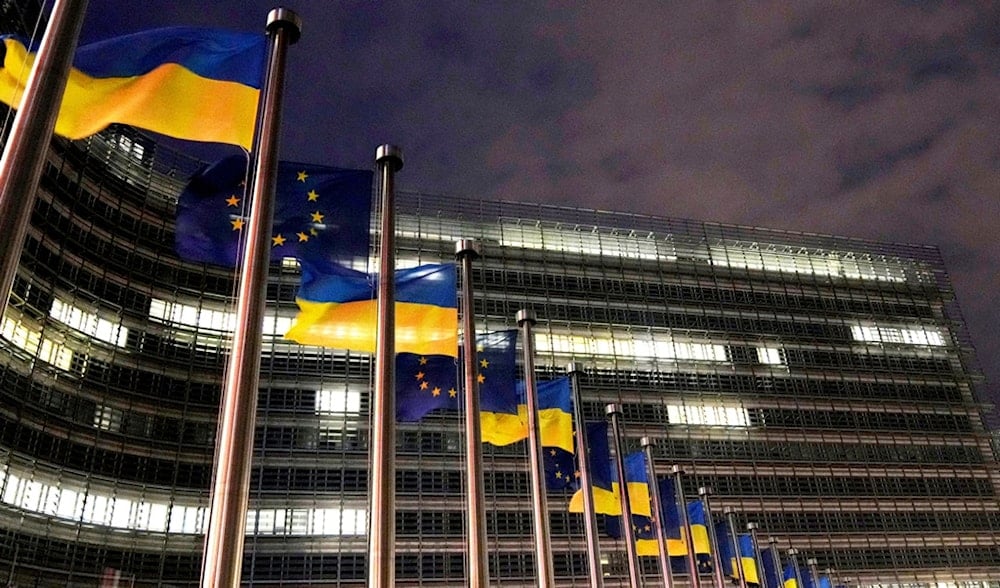Germany backs EU plan to use frozen Russian assets to fund Ukraine
Germany has backed an EU plan to channel €172 billion in frozen Russian assets to Ukraine through EU bonds.
-

The European Union and Ukrainian flags flap in the wind to mark the third anniversary of the war in Ukraine outside EU headquarters in Brussels, Monday, February 24, 2025. (AP)
Brussels has gained powerful support in its push to channel billions of euros in frozen Russian state assets to Ukraine, as Germany signaled openness to the European Commission’s latest proposal.
Michael Clauss, European affairs advisor to German Chancellor Friedrich Merz, told Politico that Berlin is open to “new, legally sound options” to tap the funds. His remarks come ahead of an informal European Council meeting in Copenhagen next week, where the plan is expected to be a top agenda item.
Germany’s stance marks a significant shift. Berlin had previously been cautious toward innovative approaches involving Russian assets frozen since Moscow’s 2022 invasion of Ukraine.
“The Ukrainians need the money to continue to purchase weapons, and there are not so many options,” Clauss said.
Three officials familiar with Berlin’s discussions told Politico that Germany prefers channeling funds into military support for Ukraine rather than reconstruction projects.
The €172 billion question
At the heart of the debate are €172 billion held by Euroclear, a Brussels-based financial firm that has invested the assets in Western government bonds. The Commission’s idea is to use the cash generated while leaving the €13 billion in underlying assets untouched.
The proposal, described by some diplomats as “legally creative,” would see the frozen cash swapped with zero-coupon EU bonds guaranteed by member states. This approach, supporters say, avoids directly confiscating Russian assets while still delivering aid to Ukraine.
Legal and political risks
The plan has divided EU leaders. French President Emmanuel Macron warned that seizing Russian central bank assets outright would breach international law. Meanwhile, Christine Lagarde, President of the European Central Bank, expressed caution, saying, “I want to see something in writing. But I’m not the only one.”
Euroclear itself fears potential legal risks if the scheme is implemented. Critics also warn that the move could spark financial volatility and undermine confidence in the euro.
With Ukraine facing a major budget shortfall in 2026, the Commission argues the proposal is a last-resort measure that avoids relying on taxpayers.
The debate is also shaped by shifting US policy. Under President Donald Trump, Washington has scaled back its support for Ukraine, leaving the EU under growing pressure to step up.
The Commission plans to formally present its proposal once it secures enough backing among EU countries.
Read more: Russia to defend its interests if its assets were seized: Kremlin

 3 Min Read
3 Min Read









